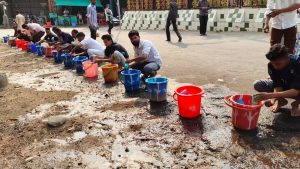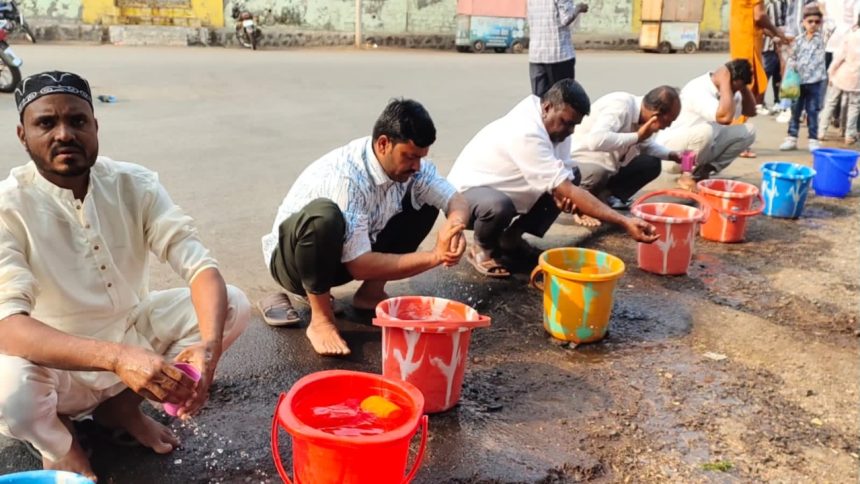“Wudu Water; Hindu Family Provides Wudu Water for Muslim Worshippers
By: Raiyyan Khan
A Symbol of Hindu-Muslim Unity in Washim, Maharashtra
Washim, Maharashtra : A Hindu family in Washim district’s Karanja city has been providing wudu water for Muslim worshippers before Eid namaz for over two decades. In Islam, wudu is a ritual purification performed before prayer, involving washing of face, hands, arms, and feet.
The Significance of Wudu in Islam

The Kashyap family’s selfless act has become a symbol of Hindu-Muslim unity in the region. Every Eid, they set up two large water tankers, drums, buckets, and glasses near the Eid prayer grounds. “We want to ensure our Muslim brothers and sisters have access to clean water for their wudu,” said Shankarlal Kashyap.
A Testament to Communal Harmony

The Muslim community has praised the Kashyap family’s efforts, calling it a “beautiful example of Hindu-Muslim unity.” A Muslim elder said, “The Kashyap family’s wudu water arrangement is a blessing for us.” This heartwarming gesture is not isolated. In Gujarat’s Ahmedabad, a Hindu temple and mosque coexist in harmony.
Inspiring Unity and Mutual Respect

The Kashyap family’s noble initiative is a testament to communal harmony and coexistence. Their selfless act inspires many, reminding us that despite differences, we can unite in the spirit of unity and mutual respect.
Unity in Diversity: Examples from Gujarat and Kerala

In Gujarat’s Ahmedabad, the historic Jami Mosque and the nearby Jagannath Temple have stood together for centuries, symbolizing the city’s rich cultural heritage. Similarly, in Kerala’s Kozhikode, Hindu and Muslim women have come together to form a cooperative society, promoting interfaith understanding and economic empowerment. These examples, along with the Kashyap family’s wudu water initiative, demonstrate the power of communal harmony and coexistence in India.








